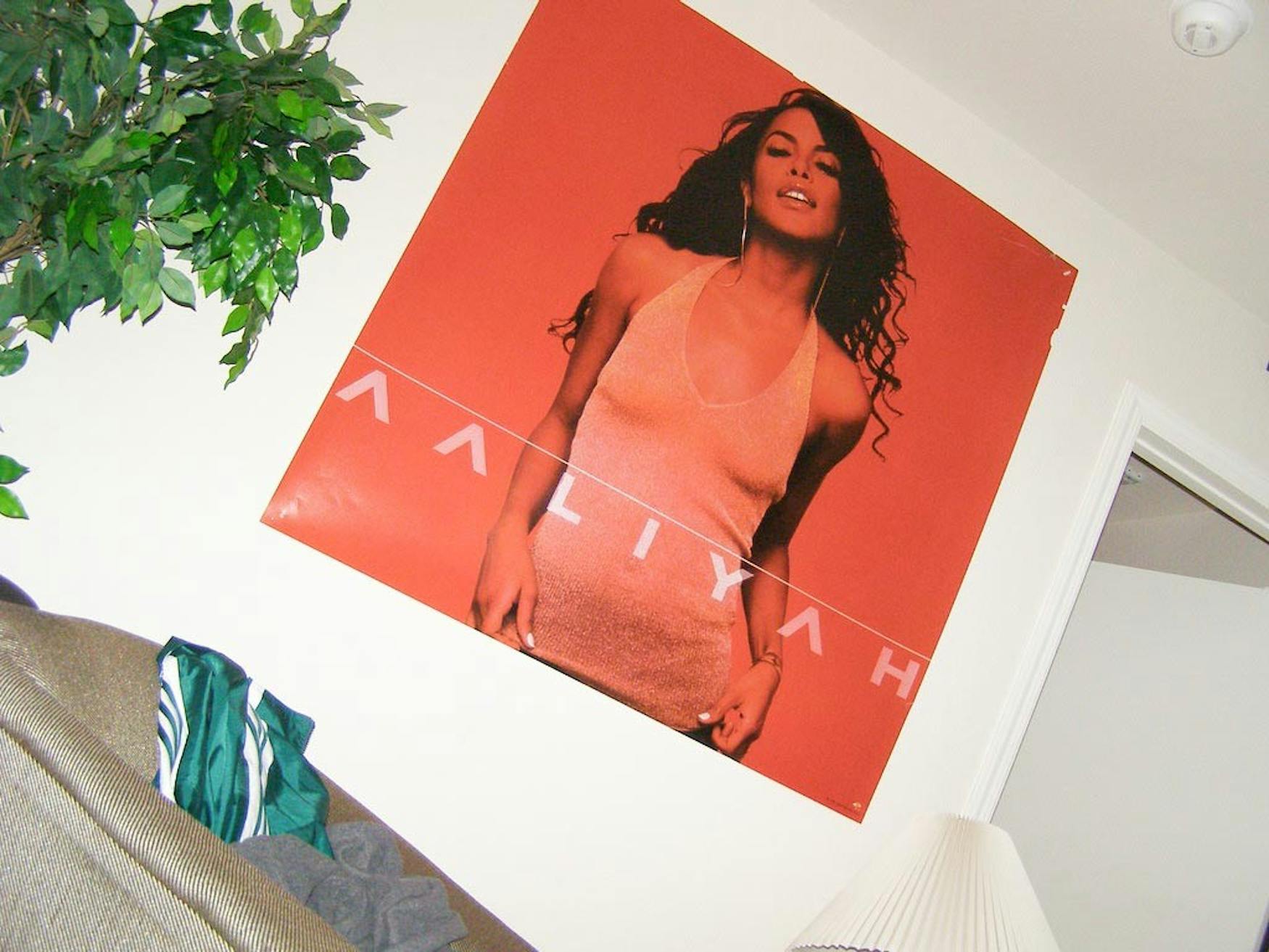‘We need a resolution’
Aaliyah’s posthumous music release coincides with R. Kelly’s conviction
Content warning: this piece includes frank discussions of sexual abuse and child abuse.
This month was the first time I was able to bask in Aaliyah’s discography, and what a month it was to start listening.
Aaliyah was an R&B singer during the ‘90s and early 2000s, who stood as the face of the golden age of R&B, all while constantly pushing the genre forward. She tragically died in a plane crash two months after the release of her third studio album, the self-titled “Aaliyah,” but her legacy has lived on.
Despite her lasting influence, this September marked the first time her music was released on major streaming platforms. Her record label, Blackground Records, run by Aaliyah’s uncle, Barry Hankerson, has released her music after an era-long streaming drought. Despite the protests of Aaliyah’s estate — run by other members of her family — Blackground partnered with Empire Records to allow a new generation of music fans to hear her music. It can be hard to believe, that in the face of an angry estate run by Aaliyah’s mother, this is a good thing, but I am grateful.
While this music release was happening, another part of Aaliyah’s life was being reintroduced to the world. On Sept. 27 of this year, R. Kelly was found guilty of all charges brought against him by the Eastern District of New York, and a large part of the case against him included Aaliyah. Kelly was her abuser. One witness testified that she saw Kelly performing sex acts on Aaliyah when she was 13 or 14. The New York Times reported that during the trial Kelly was also found “responsible for the bribe of a government employee that allowed him to marry Aaliyah in 1994 when she was 15.” That marriage was later annulled, but two years later Kelly, a pedophile, was on the soundtrack for the children’s movie Space Jam.
Those two events, Kelly’s conviction and Aaliyah’s own re-release, have brought narratives about Aaliyah back into the spotlight, but for the first time in many years, it’s possible for her narrative to not be subsumed by her victimhood.
When Aaliyah debuted in the ‘90s, she was closely associated with Kelly. Writer Naima Cochrane noted that even the music industry’s toxic instincts to pit women against each other, as happened to her peers Brandy and Monica, were kept at bay due to Aaliyah’s image being defined by her close proximity to Kelly. At the time, the stories of her abuse were treated as industry weirdness, not a serious crime. Jon Caramanica, who worked at Vibe Magazine at the time which published the marriage certificate, recently discussed on The New York Times Popcast that nobody wanted to care about Aaliyah’s wellbeing because it was easier to brush it off.
To me, as a member of Gen Z, Aaliyah’s story has always felt defined by her two great tragedies, especially in the absence of her music. I have never consumed music without using streaming as the dominant methodology. When I was first connecting to R&B of the ‘90s, I could only hear about Aaliyah, never listen to her. I’ve known every word to Brandy and Monica’s “The Boy is Mine” since middle school, but I heard Aaliyah’s song “More Than A Woman” for the first time just this month.
Meanwhile, her art has gone on to inspire modern R&B artists. Aaliyah’s vocals inspired singers like Tinashe and SZA, whose performances have Aaliyah’s same sense of low-key cool. Drake is obsessed with her: he’s interpolated her music, written letters to her, even gotten an Aaliyah tattoo. Yet, before the past few months, that inspiration was understood by our generation. Without Aaliyah, it feels like the current R&B sensibility had much less history to it, like it appeared out of the ether. Her absence was a hole in music history and that hole was felt even by those of us who could not experience her brilliance at the time.
Amplifying this tragedy is the fact I’ve known Kelly’s music my whole life. From the continued omnipresence of “I Believe I Can Fly” all the way to Kelly’s appearance on Lady Gaga’s “Do What U Want” in 2013, he has remained in the public consciousness. It feels, looking back, like Aaliyah’s lack of presence was a requirement of his continued stardom. 20 years later, Kelly’s star power is finally on the decline, and Aaliyah can reemerge.
What is most amazing is that, despite her legacy being defined by tragedy, when I listen to Aaliyah now, I do not feel sad. Instead, I feel immense joy at hearing a woman find her voice and find it so powerfully. When I listen to her second album, “One in a Million,” I hear how, instead of being defined by the constant Kelly collaborations of her early career, Aaliyah found her perfect collaborators in Timbaland and Missy Elliot, people who pushed her artistry into era-defining brilliance. When I listen to “Rock the Boat,” I marvel not only at Aaliyah’s controlled, sensual performance, but also at her ability to create a positive sexuality after her abuse. Listening to her music, it’s clear that the narrative that’s been created of Aaliyah as a solely tragic figure does her a disservice. Yes, there is tragedy, but there’s also a once-in-a-generation voice that triumphed.
Kelly was finally convicted this month, more than 20 years after Aaliyah’s death. While he was being tried, there was a billboard promoting the rerelease of Aaliyah’s music across the East River, watching over the proceedings.
On the opening track of her self-titled album, Aaliyah repeats the words “we need a resolution.” Now, as her music gets heard by a new generation for the first time and Kelly finally pays for his actions, a resolution can finally be reached.



Please note All comments are eligible for publication in The Justice.